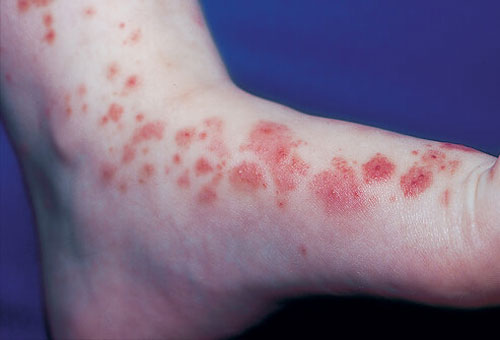Low platelets or thrombocytopenia is a condition in which, after carrying out specific blood tests, one realizes that the number of these cells is lower than the minimum established for healthy organisms. What are the symptoms that can indicate this condition? And what are the causes?
Don't store avocado like this: it's dangerous
La thrombocytopenia indicating low platelets it is a condition in which, after carrying out specific blood tests, it is realized that the number of these cells is lower than the minimum established for healthy organisms. What are the symptoms who may indicate this condition? And what are the causes?
When the body is healthy, there is in circulation for every millionth of a liter of blood between 150 and 300 platelets. When it falls below 150 thousand units we are talking about thrombocytopenia or of low platelets. It is a condition that can hide more or less serious problems or that can be linked to a particular period such as that of pregnancy.
Index
SYMPTOMS OF PLATE OPENIA
I symptoms that low platelets can give they relate in particular to a less blood clotting. Specifically, one might be visible difficult healing of cuts and wounds, hematomas recurrent, frequent bleeding also from the mucous membranes and effusions within the joints. This is due to the fact that the main role of platelets is precisely to promote blood clotting.
Read also: LIVIDI: 15 NATURAL REMEDIES TO REDUCE HEMATOMA
A typical symptom of low platelets is the so-called purple or the presence of red patches on the skin larger than 1-2 centimeters.

Photo: medicinet.com
Depending on the origin of the problem there can obviously be different symptoms from those listed above to be evaluated case by case. There thrombocytopenia it can be though also asymptomatic that is, not be recognizable in any way by external symptoms. This occurs especially when the platelet deficiency is considered minor, that is when it does not fall below 100 thousand units for every millionth of a liter of blood.
CAUSES OF LOW PLATES
Platelets may be low because our bodies don't make enough of them. In this case there is often behind this situation anemia or a condition of leukocytosis or leukopenia (i.e. the increase in white blood cells or, conversely, their decrease in the blood).
In some cases the number of platelets may be low as there is an increased use of these cells by the body, for example in the case of bleeding, heavy menstrual flow, or ongoing pregnancy. Other causes of thrombocytopenia could be different forms of hepatitis, cytomegalovirus infections, malaria, chemotherapy, mononucleosis and exanthematous diseases such as rubella, chicken pox and measles.
A deficiency of vitamin B12, essential for the formation of platelets, can also lead to a decrease in these cells. In severe cases, low platelets are due to the presence of leukemia or multiple myeloma.
Read also: VITAMIN B12: WHAT IT IS FOR AND THE CONSEQUENCES OF A DEFICIENCY
HOW TO INTERVENE
Once a low platelet situation has been ascertained by blood tests, it will be up to the doctor to indicate the therapy more suitable according to the cause that caused the problem. Frequently they are used to treat thrombocytopenia cortisone or immunosuppressive drugs. In some cases it is only possible to keep the problem under control and not to solve it completely.
The condition of thrombocytopenia in pregnancy should be monitored and monitored by the gynecologist who may seek the advice of a haematologist. If the value falls below 50 thousand units, a scheduled caesarean section is routinely used.
Definitely keep one a balanced lifestyle and eating well can help even in the case of low platelets. It is therefore a good thing to remember to drink a lot, get enough rest, do moderate physical activity on a regular basis, avoid the intake of too many sugars and fats, preferring instead a diet rich in seasonal fruit and vegetables.


























